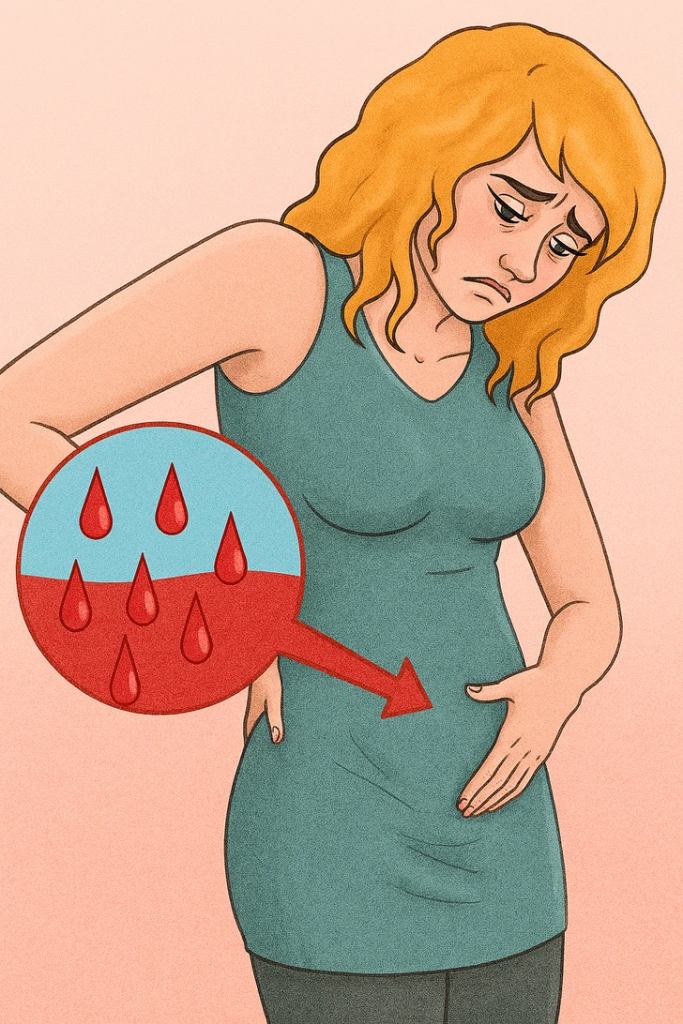Ovarian cancer has a reputation for staying quiet—too quiet. It’s often called the “silent killer” not because it doesn’t show signs, but because its symptoms are so subtle, many women brush them off as something minor. But those tiny warning bells? They matter.
In the UK alone, around 7,400 women are diagnosed with ovarian cancer every year. The scariest part? Only 20% are caught early. That’s why it’s absolutely critical to know what your body might be trying to tell you—before it’s too late.
Let’s walk through six common but often overlooked symptoms that could help you catch ovarian cancer early. No scare tactics here—just real talk and important info every woman should have.
1. Feeling Full Faster Than Usual

You know that stuffed feeling you get after devouring a holiday feast? Now imagine feeling that after eating half a sandwich. If you’re noticing a consistent drop in your appetite or fullness after just a few bites, don’t just chalk it up to stress or a small stomach.
This symptom can be linked to fluid buildup in the abdomen—something that can happen as ovarian cancer progresses. If it keeps happening, especially alongside bloating or discomfort, it’s worth a chat with your doctor.
Video: 5 Warning Signs and Risk Factors of Ovarian Cancer
2. Pelvic Pain or Abdominal Pressure

Cramps aren’t uncommon, especially around your period. But if you’re getting persistent pelvic pain that doesn’t come and go with your cycle—or feels different than your usual aches—it could signal something more serious.
Women often describe the pain as a dull pressure, or like menstrual cramps that never let up. If the discomfort starts feeling like background noise you can’t escape, don’t wait. Your body’s waving a flag. Notice it.
3. Bloating That Won’t Back Off

Let’s be honest—bloating happens. But when that ballooned-out feeling sticks around for days or weeks instead of hours, pay attention.
Constant bloating, even when you haven’t eaten much or you’re not on your period, is one of the most reported early symptoms of ovarian cancer. As tumors grow or fluid collects in your belly, your midsection may swell noticeably—and uncomfortably. Don’t just assume it’s digestive trouble if it persists.
4. Unexpected Menstrual or Vaginal Changes

Your cycle knows your rhythm. When it suddenly doesn’t, it’s time to investigate. That includes spotting between periods, bleeding after menopause, or discharge that looks or smells different than usual.
These changes don’t always scream “cancer,” but they’re definitely signs your reproductive system is off balance. If you’ve passed menopause and notice any bleeding at all, that’s your cue to call your OB-GYN right away.
5. Frequent or Urgent Urination

If you find yourself racing to the bathroom more often than usual—or struggling with sudden urges to pee—it might not just be an overactive bladder. The ovaries are located close to the bladder, and tumors in that area can cause pressure or irritation that disrupts your normal urinary habits.
If this symptom pops up without explanation and sticks around, don’t assume it’s just a hydration issue or caffeine overload.
6. Bowel Changes and Digestive Trouble

Constipation? Diarrhea? Weird indigestion that doesn’t go away? Ovarian cancer can press on the intestines and mess with your gut. That’s why some women report a whole range of digestive issues—sometimes paired with fatigue, weight loss, or back pain.
Sure, we all have off days with our stomachs. But if things seem off for more than a week or two, your body could be signaling something deeper.
Know What’s Normal For You—And What’s Not
No one knows your body better than you. So if you’re noticing changes that just don’t feel right—especially if you’re experiencing more than one of the symptoms above—don’t wait to see if they go away.
Early detection of ovarian cancer can change the outcome completely. But it depends on paying attention, speaking up, and getting the answers you deserve.
Speak Up, Even If It Feels Like “Nothing”
Video: Ovarian Cancer: Warning Signs You Should Notice
One of the biggest obstacles women face is brushing off symptoms or feeling like they’re “overreacting.” Let’s put that myth to rest. If something feels off, you’re not overthinking. You’re advocating for yourself.
Doctors would rather see you for a false alarm than miss something serious. And that “weird little thing” you almost didn’t mention? It could be the clue that changes everything.
Conclusion: Catching the Quiet Signs Could Save Your Life
Ovarian cancer may not always shout, but it definitely whispers—and those whispers matter. Whether it’s persistent bloating, strange cramps, sudden changes in your bathroom habits, or bleeding that feels out of place, your body’s not being random. It’s talking to you.
So listen. Ask questions. Trust your gut. Because when it comes to your health, staying silent is never the answer.

